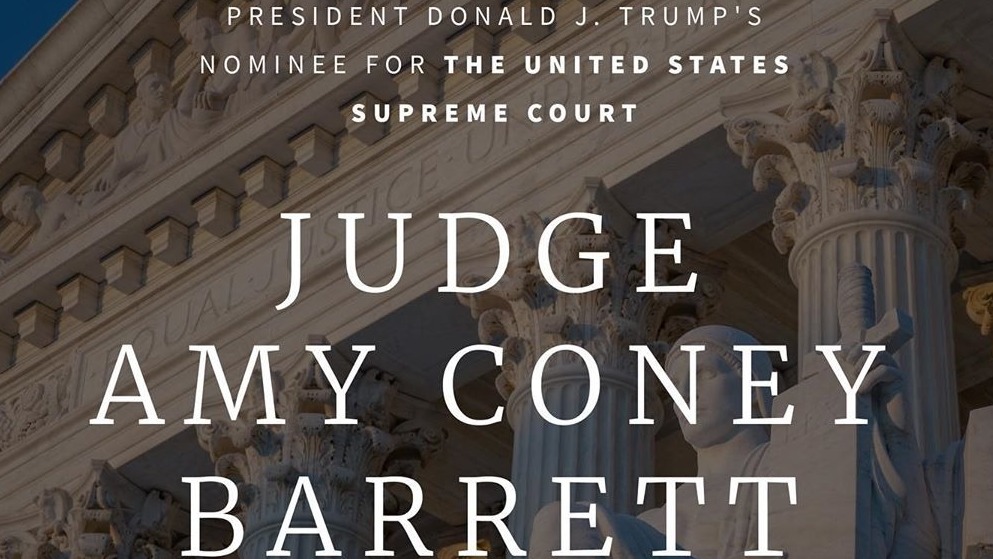On Saturday, President Trump nominated Amy Coney Barrett,48, to the Supreme Court to replace the late Ruth Bader Ginsburg.
In 2017, Barrett was appointed by Trump to the Seventh Circuit Court of Appeals in Chicago and confirmed by a Senate vote of 55-43, with only three Democrats supporting her.
In the early days of her legal career, Barret served as a clerk for the late Justice Antonin Scalia. After that, she worked briefly in private practice and ended up teaching for 15 years at Notre Dame Law School in Indiana, where she earned her law degree.
If confirmed by the Senate, Barrett would become the fifth woman to serve on the court and push its conservative majority to a commanding 6-3. She would also be the sole justice on the current court who did not graduate from an Ivy League institution, adding another nuance of diversity.
Just like the President’s two other appointees, Neil Gorsuch in 2017 and Brett Kavanaugh in 2018, Barrett is young enough to serve for decades in a lifetime job. Barrett is the youngest Supreme Court nominee since conservative Clarence Thomas in 1991 when she was 43. A devout Catholic, Barrett has the support of evangelicals who consider her a likely vote to overturn the Roe v. Wade abortion decision.
Amy Coney Barrett was not on the original list of potential Supreme Court nominees released by the Trump campaign. Her name was added soon after taking place on the appeals court bench. President Trump reportedly considered her to replace the retiring Justice Anthony Kennedy in 2018 before picking Brett Kavanaugh.
Barrett accepted the nomination to the Supreme Court accompanied by her husband and their seven children. In her prepaid remarks, she highlighted that judges need to be ”resolute” in setting aside their personal political views.
She also paid tribute to Ruth Bader Ginsburg, who passed away last Friday after pancreatic cancer complications:
Ruth Bader Ginsburg started her legal career in times where women were not welcome in the profession, Barrett noted, adding: ”She not only broke glass ceilings, but she smashed them.”
In her first speech as a Supreme Court nominee, Barrett also turned to the American people, saying that the Supreme Court is ”an institution that belongs to all of us.”
Barrett’s confirmation should be processed less than 40 days before the November presidential election. Democrats have opined that Ginsburg’s vacancy should be filled after the elections, but Republicans are pushing forward with the nomination process.
What do you think? Is Amy Coney Barrett going to be approved by the Senate?
